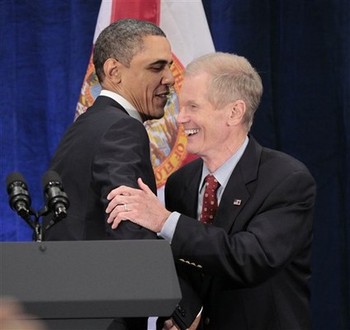Was FL Senator Bill Nelson less than truthful about Benghazi?
Senator Bill Nelson (D-FL) sent out a May 7, 2013 email reply to a constituent about the Benghazi attack. In the email Senator Nelson states:
Thank you for contacting me about the attack on the U.S. Consulate in Benghazi, Libya, which killed four Americans, including Ambassador Christopher Stevens. I was one of the first to call for hearings to get to the bottom of what happened. I questioned members of the Administration as a member of the Senate Intelligence Committee and, more recently, as a senior member of the Senate Armed Services Committee. [Emphasis added]
Senator Nelson was not a member of the Senate Intelligence Committee when he sent the email. He is currently on the Aging, Budget, Commerce, Armed Services and Finance committees. On November 15, 2012, Tom Curry, NBC News national affairs writer, reported that when Senator John McCain (R-AZ) called for a special Benghazi panel, “A Democrat in the Intelligence Committee, Sen. Bill Nelson of Florida, flatly rejected McCain’s proposal: We have all the relevant committees, including the one that I sit on which is Intel. We’re having a hearing on that tomorrow and he (McCain) sits on the Intel Committee as ex officio (as the senior Republican member of the Armed Services Committee).”
Senator Nelson goes on to state:
The military’s initial response began within minutes of the first incident in Benghazi. An unmanned, unarmed surveillance aircraft was moved over the Benghazi compound. Secretary Panetta and Gen. Dempsey conferred first with the President, and then with senior officials including Gen. Carter Ham, U.S. Africa Command. During those meetings, Secretary Panetta ordered two fleet antiterrorism security team (FAST) platoons to prepare to deploy. The Secretary also issued verbal prepare-to-deploy orders for two special operations teams. In the 12 hours between the start of the attacks and the evacuation from Benghazi, DoD postured forces to meet any contingencies that might develop. The independent Accountability Review Board found that the interagency response was timely, and that no alternative or additional armed U.S. military assets were available within a timeline to be effective in Benghazi. [Emphasis added]
Testimony since this email was sent portrays a completely different picture of what happened in Benghazi. On the ground military assets in Libya were not deployed in a timely manner. Those assets in Europe and the Mediterranean that could have been deployed were told to stand down. The handpicked Accountability Review Board included as Chair, Former Under Secretary of State Tom Pickering. Note the subpoena referenced in a letter to Pickering in mid-May by House Oversight Chair, Darrell Issa:
Your refusal to allow staff investigators to interview you is inconsistent with your commitment to be “tough and transparent.” I hope you will reconsider your position in order to assist the Committee in gaining a full and complete understanding of the ARB’s work, and to help us address concerns career State Department officials and others have raised. In light of your continuing refusal to appear voluntarily for a transcribed interview, however, I have found it necessary to issue a subpoena to compel your appearance at a deposition. This subpoena creates a legal requirement that you appear in room 2157 of the Rayburn House Office Building at 10:00 a.m. on Thursday, May 23, 2013, and that you answer questions fully and truthfully. It remains my preference for you to appear voluntarily for a transcribed interview, and if that should also become your preference, please notify my staff and I will consider lifting the subpoena.
Nelson’s letter concludes with:
Congress must do its part to ensure that Americans working abroad are safe from attack. Earlier this year the Senate passed legislation that I cosponsored allowing the transfer of $1.1 billion to enhance security at U.S. Embassies. I remain concerned about the spread of extremism in North Africa, and I assure you that I will keep your views in mind as Congress works to address these issues. [Emphasis added]
On May 16, 2013 Glenn Kessler from The Washington Post fact checked the underfunding of security for Benghazi and found, “During hearings into the attack last fall and this month, State Department officials were specifically asked if a lack of financial resources played a role in the attack. The answer was no.” A key finding in the ARB report was: “Security in Benghazi was not recognized and implemented as a ‘shared responsibility’ by the bureaus in Washington charged with supporting the post, resulting in stove-piped discussions and decisions on policy and security. That said, Embassy Tripoli did not demonstrate strong and sustained advocacy with Washington for increased security for Special Mission Benghazi,” Kessler reported.
Was Senator Nelson pushing the administration’s talking points? His email indicates discrepancies that he should have known about before he sent it.


